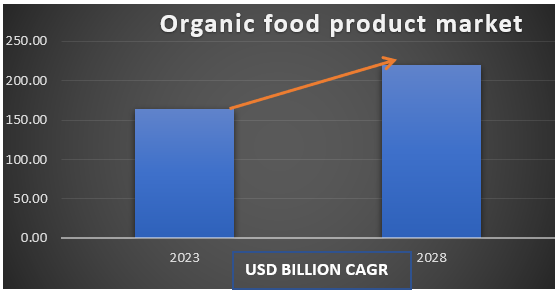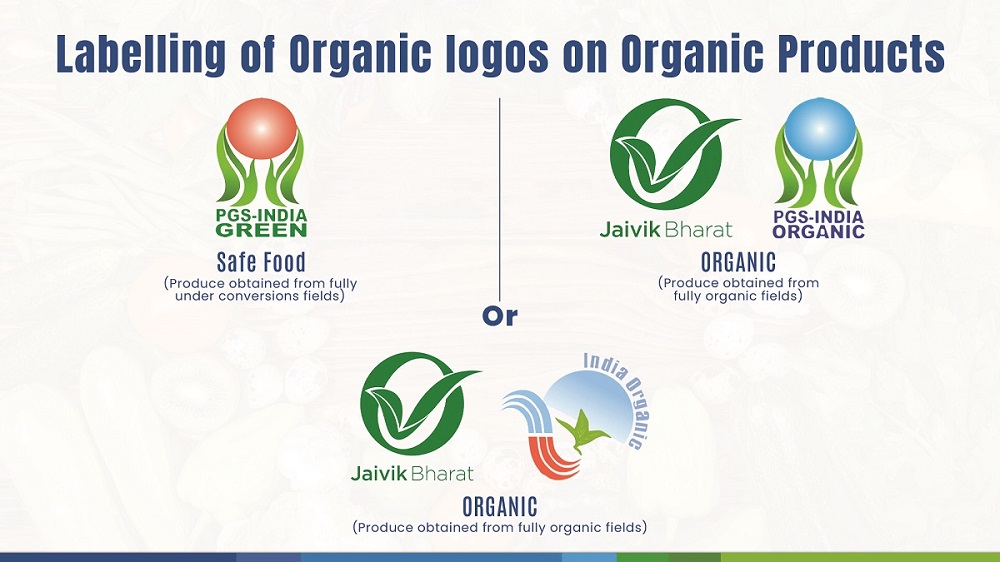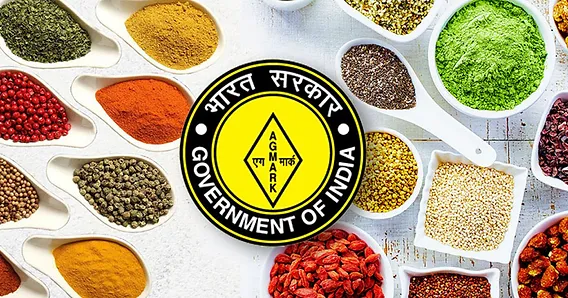Combating Organic Food Fraud in India: Leveraging Technology for Authenticity & Traceability
18th Jan 2025

|
The organic food industry in India, once celebrated for its health benefits and sustainability, is now facing a significant challenge: a rise in organic food fraud. Recent reports have revealed instances of mislabeling and fraudulent certifications, leading to widespread consumer deception. As consumers increasingly seek organic products for their health benefits, these fraudulent practices threaten both their well-being and the reputation of the entire sector.
Organic Food Market Overview
The Organic Food and Beverages Market in India is projected to experience substantial growth. The market size is anticipated to increase from USD 164.47 billion in 2023 to USD 220.30 billion by 2028, reflecting a compound annual growth rate (CAGR) of 6.02% over the forecast period spanning from 2023 to 2028. This growth highlights the growing consumer demand for organic products, which is unfortunately being overshadowed by fraudulent practices.

Common Types of Organic Food Fraud
Understanding the various forms of organic food fraud is essential for consumers and stakeholders alike. Some prevalent types include:
Mislabeling and False Certification
One of the most common forms of fraud involves mislabeling conventional produce as organic. Fraudulent entities may forge certification documents, misleading consumers into believing they are purchasing genuinely organic products. This includes situations where imported non-organic goods are sold as organic, and instances where non-organic products are marketed as organic to consumers.
Inadequate Adherence to Organic Standards
Some producers may falsely claim their products are organic while failing to adhere to stringent organic farming standards, such as using prohibited pesticides or synthetic fertilizers. A significant issue in India is the authenticity of organic produce. Many farmers market their goods as organic while incorporating synthetic fertilizers and pesticides, particularly in fruits and vegetables. This undermines consumer trust and damages the integrity of the organic market.
Imported Non-Organic Goods Sold as Organic
With the global nature of food supply chains, imported goods may find their way into the organic section. Unscrupulous sellers exploit this situation by selling non-organic items as imported organic produce.
Why is This Happening?
The rise in organic food fraud can be attributed to several factors:
Challenges in Regulating Organic Certification
Regulating the organic food sector in India poses significant challenges due to vast agricultural regions, limited inspection resources, and complex supply chains. These challenges create opportunities for fraudulent activities that compromise the integrity of the organic label. According to a recent study by ICRIER, many dealers pass off inorganic products as organic due to inadequate regulatory frameworks and penalties for offenders.
The Impact on Consumers
Consumers choose organic products with the expectation of superior quality and health benefits. Falling victim to food fraud undermines this trust and can expose individuals to harmful chemicals and practices they sought to avoid. Instances where consumers purchased certified organic fruits, only to discover they contained residues from prohibited pesticides, further emphasize the severity of the issue.
Standards and Regulations
To address these concerns, the Food Safety and Standards Authority of India (FSSAI) has issued the Food Safety and Standards (Organic Foods) Regulations, 2017. These regulations lay down the requirements for the production, processing, labeling, and certification of organic food products. The FSSAI regulations recognize two certification systems for organic food in India:
- National Programme for Organic Production (NPOP): A government-run certification program implemented by the Agricultural and Processed Food Products Export Development Authority (APEDA). Here is the complete list of NPOP certification bodies.
- Participatory Guarantee System for India (PGS-India): A community-based certification program implemented by the Ministry of Agriculture and Farmers Welfare.
Both programs adhere to principles such as the prohibition of synthetic pesticides, herbicides, and fertilizers, as well as the prohibition of genetically modified organisms (GMOs). Certified products can use the India Organic logo.

The regulations also require that organic products be labeled with specific details, including the name and address of the producer, the certification body, the certification number, and the production method (NPOP or PGS-India).
Traceability Systems Used by APEDA
To combat fraud and ensure that organic products meet the required standards, APEDA (Agricultural and Processed Food Products Export Development Authority) has implemented several traceability systems to ensure transparency and authenticity in the organic food sector. These systems allow products to be tracked from the farm to the consumer, reducing fraudulent practices and ensuring food safety. Key systems include: Hortinet, Peanut.Net, Meat.Net, TraceNet and Basmati.Net. (Read more about these traceability systems at APEDA)
These traceability systems play a crucial role in protecting the integrity of organic certification in India.
The Role of Advanced Labeling Solutions
To combat fraud effectively, advanced labeling solutions incorporating QR codes and RFID (Radio Frequency Identification) technology are crucial.
Enhanced Traceability
QR codes and RFID tags embedded in product packaging enable real-time tracking of organic products throughout the supply chain. This data-driven approach allows for the rapid identification of discrepancies or instances of fraud. If a batch of produce is found to be mislabeled, traceability systems can quickly pinpoint its origin and track its journey through the supply chain.
Authenticity Verification
Consumers can scan QR codes on product labels to access critical information such as farm origin, production methods, and certification details. This transparency empowers consumers to make informed purchasing decisions and verify the authenticity of organic claims.
Improved Food Safety
Traceability systems powered by RFID technology can quickly identify and isolate contaminated products, minimizing the risk of widespread outbreaks and protecting public health. The ability to respond swiftly in food safety incidents, such as those in 2024-25, highlights the effectiveness of such systems in safeguarding public health.
How Utopia Digitech’s Track and Trace System Fits In?
Utopia Digitech’s SureAssure platform complements existing traceability frameworks like those used by APEDA or other private brands. SureAssure utilizes digital technologies such as QR codes to offer enhanced traceability solutions and product authentication for organic products.
Key benefits of integrating SureAssure into the traceability landscape include:
- Real-time Tracking: SureAssure enables real-time monitoring of organic products throughout the supply chain, ensuring that products are verified at every stage.
- Consumer Transparency: Consumers can scan QR codes on products to view detailed information such as farm origin, certification details, and production methods, ensuring they make informed purchasing decisions.
- Improved Supply Chain Visibility: The platform offers businesses enhanced visibility across their supply chain, helping identify potential fraud and ensuring that only authentic organic products reach the consumer.
By integrating SureAssure into your organic food brand’s traceability systems, the Indian organic food industry can significantly enhance its ability to combat fraud, bolster consumer trust, and ensure strict compliance with organic standards

Agmark certification for organic food builds consumer trust and ensures quality, with Holostik’s advanced security features adding an extra layer of authenticity and combating fraud.
Consumer Engagement: A Critical Component
While technology plays a vital role in combating fraud, consumer awareness and engagement are equally important. Educating consumers about how to verify the authenticity of organic products can significantly reduce their vulnerability to fraudulent claims.
Practical Tips for Consumers:
- Look for Certification Seals: Always check for recognized organic certification seals, indicating compliance with specific standards set by accredited organizations.
- Research Producers: Use online databases provided by regulatory bodies like FSSAI to verify producers’ authenticity.
- Engage with Brands: Follow brands on social media or subscribe to newsletters for updates regarding their practices and product authenticity.
- Utilize Technology: Scan QR codes or use mobile apps designed for verifying product authenticity.
- Report Suspected Fraud: If you suspect a product is mislabeled or fraudulent, report it to relevant authorities like FSSAI or local consumer protection agencies.
Companies driven by some social cause like Utopia Digitech provide innovative phygital solutions through dedicated security solutions platforms like SureAssure, which offer comprehensive tracking capabilities, allowing consumers to verify product authenticity seamlessly.
The Importance of Traceability in Food Safety
Traceability plays a critical role in ensuring food safety in India’s organic sector, where compliance with strict standards is essential. Implementing effective traceability systems helps mitigate risks associated with contamination and ensures that products are genuinely organic.
Rapid Response to Contamination
Traceability systems can quickly identify contamination sources and isolate affected products, minimizing public health impacts.
Adhering to Compliance
Traceability data ensures compliance with organic standards and regulations, helping maintain market integrity. Revised USDA regulations emphasize robust monitoring mechanisms to hold producers accountable.
Enhanced Risk Management
Traceability systems help businesses identify vulnerabilities within their supply chains, allowing them to proactively mitigate risks and improve food safety practices.
Way Forward
As demand for organic food continues to grow in India, so does the risk of fraud. By adopting advanced labeling solutions such as QR codes and RFID technology, engaging consumers in verifying product authenticity, and implementing robust traceability systems, stakeholders can protect both their businesses and consumer trust. Companies like Holostik India and Utopia Digitech are leading this charge by providing innovative solutions that promote transparency and safety within India’s growing organic food industry.
In this evolving organic food market, where consumer awareness is paramount, all parties, from producers to retailers, must prioritize integrity in their practices. By collaborating toward a transparent supply chain backed by technology-driven solutions, we can ensure that consumers receive authentic organic products while safeguarding public health against fraudulent practices.
Reach us at 📞 0120-4192700 and ✉ info@utopiadigitech.com or visit 🌐 www.utopiadigitech.com